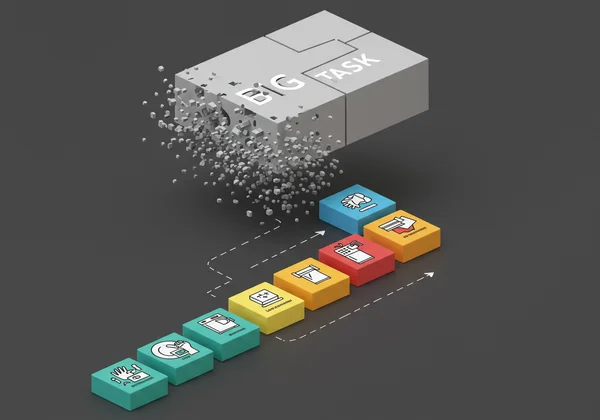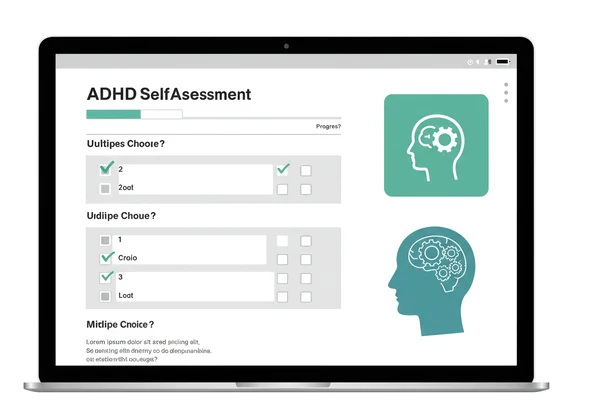ASRS Test: ADHD Coping Strategies & Management While You Wait
November 13, 2025 | By Miles Harrison
Feeling overwhelmed by a constant sense of disorganization, procrastination, or inattention? You're not alone. The period between suspecting you might have Adult ADHD and receiving a formal evaluation can be incredibly challenging. It often feels like you're in limbo, aware of the struggle but unsure of the next steps. While you navigate this journey, it’s crucial to know that you don't have to struggle silently. This guide offers practical, non-medical ADHD coping strategies to help you manage symptoms and reclaim a sense of control over your daily life, starting today. Wondering how to test yourself for ADHD as a preliminary step? An online screening can be a valuable starting point to gather insights before speaking with a professional. You can explore a confidential ASRS test online today to better understand your experiences.

Practical Strategies to Manage ADHD Symptoms Daily: An ASRS-Informed Approach
Building a foundation of daily habits can make a significant difference in managing ADHD-like symptoms. These strategies are about creating external structures to support your internal challenges with executive functions like organization and task management. Think of them as building a scaffold around your goals to make them easier to reach.
Break Down Tasks into Smaller, Manageable Steps
Does a big project feel so daunting that you can't even start? This is known as task paralysis, and it’s a common hurdle. The antidote is to break down large, vague tasks into tiny, concrete steps. Instead of "clean the kitchen," your list might become "load the dishwasher," "wipe the counters," and "sweep the floor." Each small accomplishment provides a dopamine boost that builds momentum, making the overall goal feel far less intimidating.

Create an Organized & Distraction-Free Environment
Your environment directly impacts your ability to focus. For a brain prone to distraction, visual and auditory clutter can be overwhelming. Designate a specific, uncluttered space for work or important tasks. Use headphones to block out noise, turn off non-essential phone notifications, and keep only the items you need for your current task on your desk. A calm, organized space sends a signal to your brain that it’s time to concentrate.
Utilize Digital Tools for Reminders & Planning
Your brain is for having ideas, not holding them. Externalize your memory by using digital tools to your advantage. Use calendar apps for appointments, setting multiple reminders before an event. To-do list applications can help you organize your tasks for the day or week. Don't underestimate the power of a simple timer or alarm to remind you to switch tasks or take a break. These tools act as an external executive function, freeing up mental energy. Getting a baseline of where you struggle can help you choose the right tools; an ADHD self-assessment can provide that insight.
Boosting Focus & Overcoming Inattention
For those with ADHD, inattention isn't just about getting distracted – it's a profound struggle to direct and sustain your focus where you want it to go. It can feel incredibly frustrating. The following techniques are designed to help you work with your brain's natural rhythm instead of fighting against it, making it easier to sustain mental effort on tasks that matter.
Implement Time-Blocking or the Pomodoro Technique
Instead of facing an open-ended workday, give your time a defined structure. Time-blocking involves scheduling specific blocks of time for specific tasks. The Pomodoro Technique is similar but uses short, timed intervals (typically 25 minutes) of focused work followed by a 5-minute break. This method creates a sense of urgency and makes tasks feel less endless. It also reassures your brain that a break is always just around the corner, making it easier to engage in the moment.

Practice Mindful Movement & Sensory Breaks
Sometimes, the best way to regain focus is to step away entirely. When you feel restless or your thoughts are racing, a short burst of physical activity can work wonders. This could be a brisk walk, stretching, or even just doing a few jumping jacks. These mindful movement breaks help expend excess energy and reset your nervous system. Sensory breaks, like listening to a favorite song or stepping outside for fresh air, can also help ground you and reduce mental fatigue.
Prioritize Single-Tasking Over Multitasking
While multitasking is often praised, for the ADHD brain, it’s usually a recipe for chaos and half-finished projects. Juggling multiple tasks at once divides your attention, increases the likelihood of errors, and depletes your mental energy much faster. Make a conscious effort to focus on one single task at a time. Close unnecessary browser tabs, put your phone away, and give your full attention to the job at hand. You'll likely find that you complete it faster and with less stress.
Navigating Executive Dysfunction with Purpose
If you struggle with planning, organizing, or just starting tasks, you're likely experiencing executive dysfunction—a core component of ADHD. The key is to stop fighting your brain and instead create external systems that make these processes more visible and manageable, reducing the daily cognitive load.
Establish Visual Cues and Checklists for Routines
When your working memory is unreliable, visual aids are your best friend. Use sticky notes, whiteboards, or checklists to map out your morning or evening routines. Place a note on the front door reminding you to grab your keys, wallet, and phone. A visible checklist for a multi-step work process can ensure you don't miss anything important. These external cues act as a safety net, preventing things from slipping through the cracks.
Build Consistent Daily & Weekly Routines
Routines are the bedrock of effective self-management. When a sequence of actions becomes a habit, it requires far less mental energy and willpower to execute. Start small by establishing a consistent wake-up time, a simple morning routine, or a designated time each week for planning meals and groceries. While structure can feel restrictive at first, it ultimately creates more freedom by automating essential tasks.
Use the "Two-Minute Rule" for Task Initiation
Overcoming the initial inertia to start a task is often the hardest part. The "Two-Minute Rule" is a simple but powerful trick: if a task takes less than two minutes to complete, do it immediately. This applies to things like responding to a quick email, putting a dish in the dishwasher, or tidying up a small mess. For larger tasks, commit to working on them for just two minutes. Often, that small start is all you need to build momentum and keep going. This simple strategy can be a great first step, just like an online ADHD screening can be the first step to understanding your symptoms.
Seeking Support & Self-Compassion on Your Journey
Managing ADHD symptoms is not just about productivity hacks; it's also about emotional well-being. It's vital to approach this journey with kindness toward yourself and to build a support system that understands and validates your experiences.
Communicate Your Needs & Boundaries Effectively
It's okay to ask for help and to explain your challenges to trusted friends, family, or colleagues. You might ask a partner to help with accountability or request written instructions from a manager to support your working memory. Learning to say "no" to extra commitments when you're feeling overwhelmed is also a crucial act of self-care. Clear communication reduces misunderstandings and builds a stronger support network.
Using the ASRS Test: Your Next Steps in Managing Adult ADHD Symptoms
Implementing these coping strategies can empower you to better manage daily life while you explore the possibility of an ADHD diagnosis. Remember, these techniques are tools for management, not a replacement for professional medical advice.
Understanding your unique brain is a significant journey. Taking a preliminary step, like a self-assessment, can offer invaluable clarity and better prepare you for productive conversations with healthcare providers. Consider taking a confidential ASRS test on our platform. This tool, based on the World Health Organization's self-report scale, is designed to give you a private, initial screening. After completing it, you'll receive an AI-powered personalized report that can help you articulate your symptoms and experiences. Get your AI report and take the first step toward clarity today.

Frequently Asked Questions About Managing ADHD Symptoms
What are common symptoms of ADHD in adults?
Common symptoms include difficulty sustaining attention, chronic procrastination, poor time management, disorganization, forgetfulness, impulsivity, and emotional dysregulation. Adults may also experience an internal sense of restlessness rather than overt hyperactivity.
How can I tell the difference between ADHD and laziness?
Laziness is a choice not to act despite having the ability, whereas ADHD involves a genuine neurological difficulty with executive functions like task initiation and focus. A person with ADHD often wants to do the task and feels significant distress about their inability to start or complete it, which is very different from a simple lack of desire.
Is getting an ADHD diagnosis really worth it?
For many, a diagnosis is life-changing. It provides an explanation for lifelong struggles, reduces shame, and opens the door to effective treatments, including therapy, coaching, and medication. It allows you to access accommodations at work or school and find a community of people with similar experiences.
What conditions might mimic ADHD symptoms?
Several conditions can have overlapping symptoms with ADHD, including anxiety, depression, bipolar disorder, sleep disorders, and thyroid issues. This is why a comprehensive evaluation by a qualified professional is essential to rule out other causes and ensure an accurate diagnosis.
How can I get an initial assessment for adult ADHD?
A great first step is to document your symptoms and experiences. Using a standardized screening tool can help structure this process. Our website offers a free ASRS test based on a clinically recognized scale. You can use the results from this self-screening as a starting point for a conversation with your primary care doctor, a psychiatrist, or a psychologist who specializes in adult ADHD.